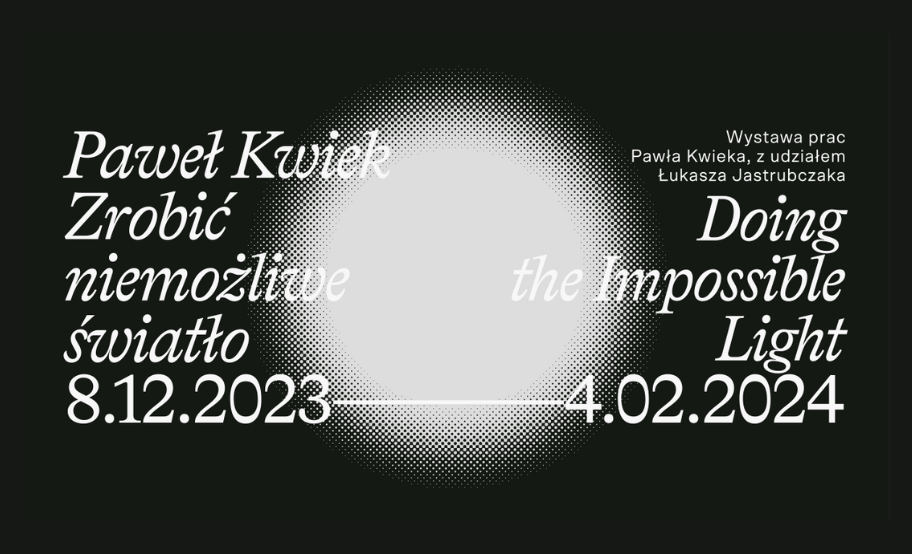„Doing the impossible light”. Exhibition of works by Paweł Kwiek with participation of Łukasz Jastrubczak


The artist (16 March 1951 – 13 March 2022) created in practically all media: he expressed himself in film, was a forerunner of video art in Poland, a photographer, performer, and was also involved in painting, drawing and sculpture. He changed artistic tools with ease, never losing sight of what was most important to him.
He graduated from the Film School in Łódź (1969-1974), where he co-founded the legendary Film Form Workshop group (1970-1978), and was also a lecturer at the school (until 1981). He also lectured at the Academy of Fine Arts in Warsaw (1974-1976).
In the 1970s, he took a very active part in the milieu of the Polish neo-avant-garde, creating mainly films on 35 mm film, video and photographs. These were usually described as conceptual or structural works, although it was already apparent at the time that Kwiek’s creative interests went beyond the canon of issues most often addressed in art at the time.
Most of his works of the time were concerned with interpersonal communication and were based on the search for understanding despite different points of view. This became even more apparent around 1978, when the Film Form Workshop virtually suspended its activities. It was then that Kwiek’s realisations such as 'Video and Breath. Information channel’, 'Perception of the lack of differentiation’ or 'Interdrawing table’.
Shortly afterwards, in 1980, an event took place that the artist described as 'the central experience of his life’. During a long meditation (he was doing yoga and breathing exercises at the time), he saw an unusual golden light in front of him, which was in constant motion, at the same time remaining calm and emanating love. The experience caused Kwiek to revise his hitherto rational – as he said himself – world view and to begin an intensive search in the sphere of spirituality, opening himself up even more to others and to metaphysical experiences.
At the beginning of the 1980s, he suffered a severe nervous breakdown, which triggered his numerous hospital admissions. The rhythm of his life began to be marked by relapses (paranoid schizophrenia), interspersed with recoveries. He always spoke openly about his illness, treating it as a part of life, trying to bring his experience closer to others. Despite many years of poor material and health circumstances, he was creatively active practically until the end of his life.
His work from the 1980s and 1990s is a remarkable record of his encounters with others and his own spiritual experiences. In 2010, he produced the ever-present 'Three Days Without War’, in which he called on world leaders to unconditionally cease hostilities. In the last period of his life, he wrote a lot, mainly working on his diaries and creating poems, as well as special photo albums that showed his uneasy everyday life.
„Doing the impossible light”. Exhibition of works by Paweł Kwiek, with participation of Łukasz Jastrubczak
Curator: Marika Kuźmicz
Collaboration: Adam Parol
Graphic design: Krzysztof Bielecki
9 December 2023 – 4 February 2024
opening: 8 December 2023, at 7 p.m.
exhibition open: tt. – Sun. 12:00 – 19:00
Czapski Palace, Academy of Fine Arts in Warsaw
5 Krakowskie Przedmieście Street
Subsidised by the Ministry of Culture and National Heritage from the Fund for the Promotion of Culture